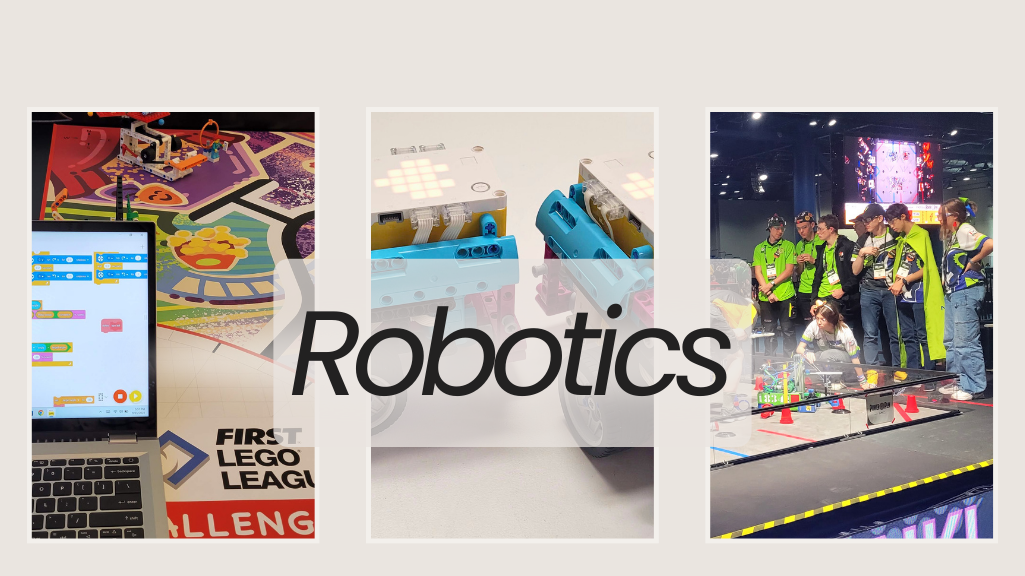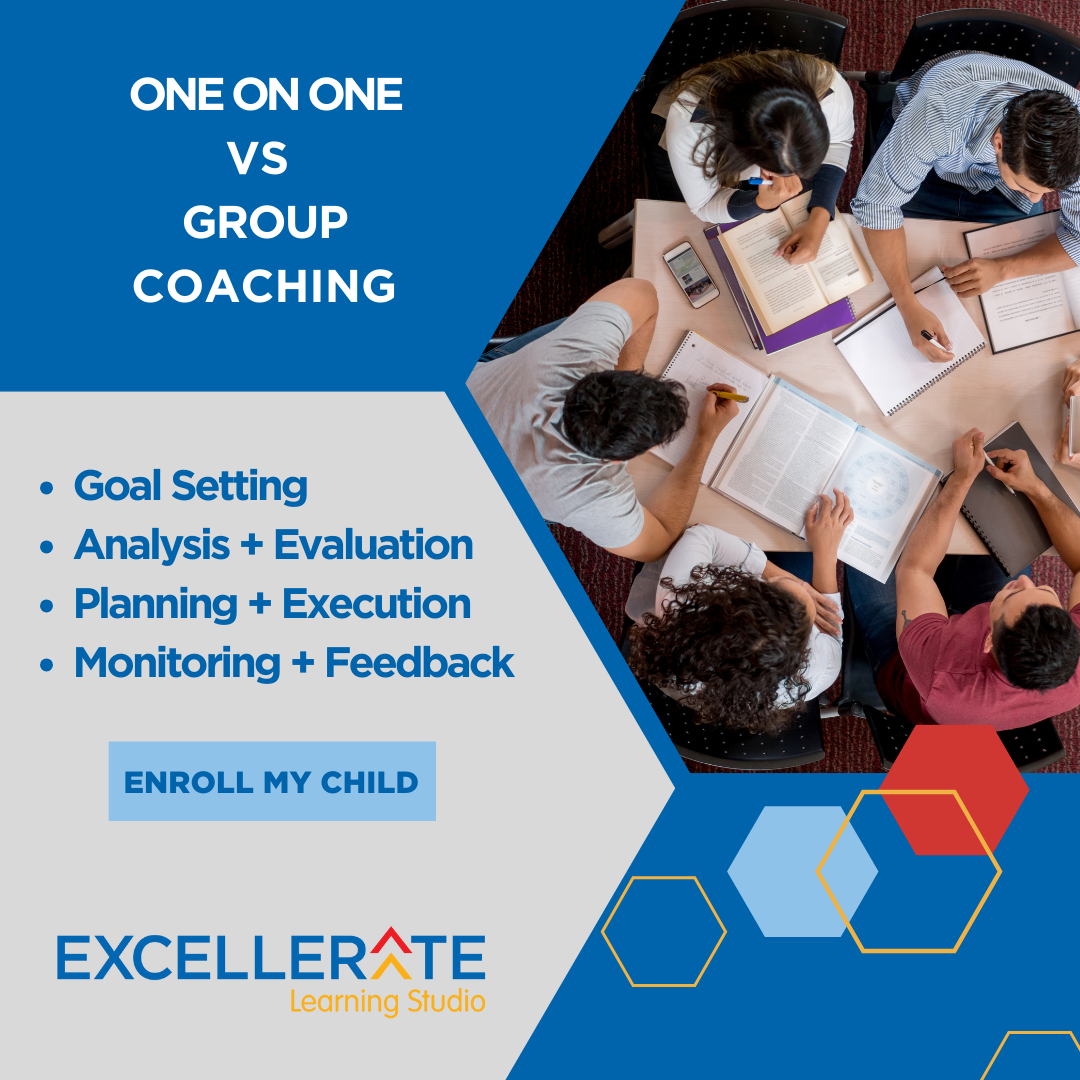Raising Innovators: How Robotics in STEM Education is Shaping Tomorrow’s Leaders
In an era dominated by rapid technological advancements, preparing our children for the future has never been more crucial. As parents, we strive to equip our kids with the skills they’ll need to thrive in a dynamic, tech-driven world, with transferable skills that will serve them for a long period. One of the most powerful tools at our disposal is education, particularly in fields that blend technology and creativity, such as robotics. We will learn what kinds of benefits students will reap when they are involved in robotics, and the STEM education will equip students to be more ready and confident facing the new challenges.
The Role of Robotics in Education
Robotics education stands at the intersection of technology and creativity, offering a unique platform for students to enhance their critical thinking, creativity, and problem-solving skills. By incorporating robotics into STEM (Science, Technology, Engineering, Math) education, children learn not just to interact with technology, but to become its creators. This hands-on learning approach encourages students to understand complex concepts in a more engaging and practical manner.
When robotics was introduced to high school students in the late 80’s, it was such an innovative concept that it was difficult to imagine how the STEM field would advance and integrate with the K-12 education. Over the next several decades, the importance of hands-on experience and project-based learning become an important part of education experience, educators and parents see that early exposure to robotics can make such a huge difference in young people’s lives.
Recently, there are many organizations and start-up companies that are striving to make the introduction to robotics and coding easier, offering programs that are age appropriate. We will learn about the benefits of robotics education for students, the present challenges, and how the parents can support our young people.
Benefits for Students
Academic Improvement
While there has been drastic improvement in the K-12 education system to incorporate hands-on learning, it is challenging for our young minds to connect what they learn in the classroom and how that impacts the real world.
Robotics has shown to significantly impact students’ academic performance, particularly in STEM subjects. It offers a tangible way to apply mathematical concepts, scientific principles, and engineering processes. This real-world application helps solidify their understanding and often leads to improved grades and a deeper interest in STEM fields.
For example, many students don’t hear about the Design Thinking process that is readily used in many engineering disciplines and business settings, as well as academic settings in higher education. Design Thinking is a unique way of solving problems by focusing on understanding people’s needs. It’s especially helpful for tackling tricky problems that don’t have clear solutions. The process involves getting to know the problem from a human perspective, brainstorming a lot of ideas, and then trying out solutions to see what works best. It’s all about being creative and hands-on to find the best answer. Students can learn a lot from going through this process, yet this is not being readily taught in the traditional classroom.
Enhanced Engagement
The interactive nature of robotics captivates students’ attention more effectively than traditional teaching methods. It challenges them to be creators, encouraging active participation and sustained engagement in their learning process. This engagement is a critical factor in academic success and long-term interest in education.
Many current robotics programs use simple block coding programs to see the connection between the coding and how the coding affects the robot’s execution. Students can see the cause and effect of the coding instantly and this helps the students to be actively involved in the process of planning and executing in problem solving.
A recent study shows from FIRST shows that the students who were involved in their robotics program shows a significantly higher percentage of students who were a part of the robotics program will declare STEM, especially in Engineering or Computer Science field, and this trend was even stronger among especially female students who are considered significantly underrepresented in the STEM field.
Career Readiness
As we move towards a future increasingly dominated by technology and automation, it’s becoming clear that these elements will be integral to almost every career path. In this evolving landscape, robotics education emerges as a critical tool. It does more than just acquaint students with the latest technology; it deeply embeds the soft skills that will be paramount for success in the future workforce. By engaging with robotics, students learn the importance of teamwork, as they often work in groups to solve complex problems. They enhance their communication skills, learning to articulate ideas and technical concepts clearly and effectively.
Additionally, robotics projects teach valuable project management skills, including planning, execution, and adaptation, preparing students for the dynamic challenges of the professional world. This comprehensive approach not only prepares students for careers in technology but also equips them with the versatile skills needed in a wide range of professions, ensuring they are adaptable, agile, and ready for the future.
Adult mentorship also has played an important role in this area. Many volunteers, educators, and parents paved the way to make robotics more accessible for younger students. Students who benefited from the early exposure come back to the activities and serve as dedicated mentors.
Overcoming Challenges
Understandably, the cost and accessibility of robotics education can be significant concerns for parents. Also, for parents who do not have any technical background, learning and organizing the team to join the robotics competition can be a daunting task.
However, many schools and community centers now offer robotics clubs or programs that are either free or low cost. Additionally, there are many summer and year round programs available at affordable prices to give solid education on computational thinking skills, design thinking skills, communication, collaboration, and problem solving skills.
How Parents Can Support
Encouraging your child to participate in robotics doesn’t have to be daunting. Here are a few practical steps you can take:
- Look for local robotics clubs or camps that align with your child’s interest level and your budget.
- Visit STEM/STEAM fairs that are offered by local community colleges or organizations.
- Attend events like robotics competitions or open houses to heighten your child’s interest and understanding of the field.
Success Stories
The documentary “More Than Robots” captivatingly chronicles the journey of four teenage teams from across the globe as they gear up for the 2020 FIRST Robotics Competition. The film takes us into the lives of teams from Los Angeles, Mexico City, and Chiba, Japan, showcasing their journey as they aim to bring their innovative designs to the forefront of the fiercely competitive international robotics championship. Despite facing hurdles such as limited resources in their communities and the unprecedented challenges posed by a global pandemic, these young individuals demonstrate resilience and determination. Through their experiences, they discover that the competition transcends the realm of robotics, teaching them invaluable lessons about teamwork, innovation, and perseverance.
Conclusion
The benefits of integrating robotics into STEM education extend far beyond the classroom. It prepares students for a future where technology and digital literacy will be paramount. By fostering an interest in robotics, parents can provide their children with a solid foundation for success in nearly any field they choose to pursue.
With the future coming at us faster than ever, it’s time to encourage our children to engage with robotics and STEM. Interested in seeing these benefits firsthand? Attend our upcoming robotics open house to learn more about how this exciting field can set your child on the path to becoming a leader of tomorrow.
One on one vs Group Coaching
One on One vs Group Coaching we provide both at Excellerate Studio. We recognize that personal and professional growth is a journey, to each individual. We provide both coaching sessions and group coaching programs to meet your needs and objectives. With a variety of choices, how do you determine the path for you? This article explores the realm of individual and group coaching outlining their benefits and factors to help you make a decision.
One-on-One Coaching: Deep Dives and Tailored Solutions
Individual coaching, also referred to as one on one coaching, delivers a tailored experience. Imagine having a coach who focuses on your goals, challenges and learning preferences. Here are the key aspects that make individual coaching impactful:
- Focused Attention: Your coach dedicates all sessions to cater specifically to your needs allowing for in depth exploration of your challenges and opportunities for development.
- Personalized Approach: The program is customized based on your pace learning style and desired outcomes. Expect an approach that adjusts according to your evolving requirements.
- Privacy and Trust: One on one sessions create an environment for dialogues, on sensitive topics or personal obstacles. Having this kind of closeness enables a dive into emotions and openness resulting in discoveries.
One-on-One Coaching Applications:
- Executive Coaching: Leaders who want to improve their leadership abilities handle situations effectively. Strengthening their long term goals can greatly benefit from personalized coaching sessions.
- Career Development: If you are in the midst of a career shift aiming for a promotion or navigating the job market, individual coaching can equip you with the skills and tactics to reach your objectives.
- Personal Development: Whether its overcoming hurdles improving communication abilities or boosting self assurance personalized coaching enables you to unlock your potential across various areas of life.
Group Coaching: Synergy, Support, and Shared Learning
Group coaching programs bring together people, with objectives. Dealing with similar hurdles. This interactive setting provides a mix of guidance and the benefits of shared learning:
- Shared Experiences and Perspectives: Being part of a group with shared goals can be highly motivating. Collaborative discussions enable the exchange of ideas, diverse viewpoints and the exploration of strategies to overcome obstacles.
- Responsibility: Group coaching nurtures a sense of community and inclusion. Through learning from and supporting members you cultivate responsibility. Create connections with like minded individuals.
- Affordability: Group coaching initiatives are typically more budget friendly than one on one coaching making them accessible to an audience.
Group Coaching Applications:
- Group Coaching for Students: Students can gain insights from participating in group coaching sessions tailored to enhancing performance, managing stress effectively or cultivating efficient study routines.
- Team Coaching Training: Companies have the opportunity to enhance team dynamics by utilizing group coaching sessions aimed at fostering communication, teamwork and problem solving abilities among team members.
- Leadership Training: Group coaching initiatives are instrumental in equipping emerging and established leaders with tools and tactics for success, in their leadership roles.
Choosing the Right Coaching Path
When deciding between one, on one coaching and group coaching it’s important to consider a factors:
- Your preferred learning style: Do you excel in personalized settings or do you thrive in a group dynamic?
- Budget considerations: One on one coaching typically requires a larger financial commitment compared to group coaching.
- Alignment with your goals: The nature of your goal may determine whether one format is more suitable than the other.
- Level of confidentiality desired: If maintaining privacy is crucial for addressing your challenges one on one coaching may be the better choice.
Excellerate Studio: Your Partner in Growth
At Excellerate Studio we provide a variety of individual and group coaching courses. Our team of coaches who are all certified by the International Coach Federation (ICF) can help you reach your goals no matter which direction you take. With their expertise and experience our coaches excel in leading engaging group coaching sessions that foster an fruitful atmosphere.
FAQs: One-on-One vs. Group Coaching
Q: I’m a leader looking to refine my skills. Should I choose one-on-one leadership coaching or a group coaching program?
Both options have their advantages, for leaders. One-on-one leadership coaching offers an experience allowing you to explore your leadership style, obstacles and goals more deeply. On the other hand, participating in a group coaching program can also be effective for developing leadership skills. Group sessions provide the chance to learn from leaders’ experiences and gain perspectives. Ultimately the optimal choice will depend on your preferred learning approach and financial considerations. Individual coaching allows for guidance whereas group coaching promotes a sense of camaraderie and is usually more cost efficient.
Q: I’m interested in becoming a coach. Does Excellerate Studio offer any programs related to coaching skills?
Sure thing! Our group coaching training program is tailored to provide you with all the skills and information required to excel as a coach. It includes lessons on listening, questioning methods, popular coaching frameworks such as the GROW model and ethical aspects of coaching.
Q: What is a typical group coaching model, and how does it differ from one-on-one coaching?
One of the used group coaching models is the GROW model, which represents Goal, Reality, Options and Will. This structure directs group conversations to assist members in clarifying their objectives, evaluating their circumstances, considering choices and creating a specific action strategy. In contrast individual coaching customizes the session to suit the individual’s requirements incorporating coaching techniques and models as necessary.
Q: What are the benefits of participating in group coaching sessions?
Group coaching provides a mix of support and the advantages of learning together as a group. You get the benefit of your coach’s knowledge while also gaining perspectives and experiences from members in the group. This helps create a feeling of community, responsibility and mutual encouragement as you strive to achieve your objectives.
Q: Can I participate in group coaching sessions online?
Certainly! Numerous coaching programs, such as the ones at Excellerate Studio offer the convenience of engagement. This enables you to engage with a coaching community and join sessions virtually no matter where you are located.
Q: What are some of the key coaching skills needed to facilitate effective group coaching?
Skilled group coaches excel in coaching principles and models while also creating an inclusive atmosphere for discussions. They engage in listening with group members, promote learning and handle group dynamics to maintain a productive and supportive learning setting.
10 Essential Tips for College Prep
Worrying about college prep? As high school students approach graduation, the thought of college can be both exciting and overwhelming. With the admissions process, higher education, and future planning on the horizon, it’s important to start preparing early. This blog will discuss 10 important tips for preparing for college. These tips will help students succeed in school and reach their career goals.
Why College Prep is Important with Excellerate learning studio:
Our College Consulting Roadmap program provides comprehensive support and guidance on navigating the often murky waters of college planning.
Helps students find a school that is academically challenging, affordable, and offers social activities for a fulfilling experience. Works with each student personally.
Provides free college consultation available for you to schedule to start learning about college roadmap. This prepares students with college decisions and provide insight to Financial, Academic, Major/Career and college choices available.
Let’s delve into 10 essential pieces of advice to assist students in preparing for university.
1. Start Early and Prep
The earlier students start preparing for college, the better. This gives extra time to research majors, career paths, improve study skills, and set academic goals. Starting early also gives students more time to prepare for standardized tests and complete college applications. Hence it is essential for students to enroll in college prep programs for high school students.
2. Recommended College Prep Programs
Excellerate Studio have best college prep programs and educational prep programs to help students prepare for college.
Our expert college consultants provides assist with:
- School selections
- Application strategy
- Timeline
- Application
- Essay
- Meeting with Parents
3. Understand the Admissions Process
The college admissions process can be complex and overwhelming. Important for students to understand the requirements and deadlines for the colleges they are interested in. This can include standardized test scores, letters of recommendation, and application essays. Knowing the admissions process can help students stay organized and on track.
4. Develop Study Skills
College coursework can be challenging, so it’s important for students to develop strong study skills. This can include time management, note-taking, and test-taking strategies. College prep programs often offer workshops and resources to help students develop these skills.
5. Set Academic Goals
Setting academic goals can help students stay motivated and focused throughout their high school years. These goals can include maintaining a certain GPA, taking challenging courses, and participating in extracurricular activities. By setting goals, students can work towards achieving academic success and standing out in the college admissions process. College prep programs like Excellerate College Roadmap for high school students provide essential tools and resources to ensure academic success and smooth transition into college life.
6. Take Challenging Courses
Colleges look for students who have challenged themselves academically. This can include taking advanced or honors courses, as well as participating in dual enrollment programs. These courses can also help students prepare for the rigor of college coursework.
7. Prepare for Standardized Tests
Standardized tests, such as the SAT and ACT, are an important part of the college admissions process. Important for students to prepare for these tests by taking practice exams and utilizing test prep resources. College preparation programs often offer test prep courses to help students achieve their best scores.
8. Research Potential Majors and Careers
Exploring potential majors and careers can help students make informed decisions about their education and future. This can involve researching job outlooks, salary potential, and required coursework for different majors. College prep programs may offer career planning resources to help students in this process.
9. Attend College Fairs and Information Sessions
College fairs and information sessions are great opportunities for students to learn more about different colleges and their programs. These events allow students to speak with admissions representatives and ask questions about the college experience. Attending these events can also help students narrow down their list of potential colleges.
10. Stay Organized
Staying organized is crucial for a successful college prep experience. This can include keeping track of deadlines, creating a study schedule, and maintaining a list of potential colleges. College prep programs provide tools and resources to help students stay organized and manage their tasks and responsibilities effectively.
Conclusion
College preparatory program offered by Excellerate studio is an important step in achieving academic success and reaching career goals. Start early, research programs, learn about admissions, and improve study skills to get ready for college. With the right resources and support, students can confidently navigate the college prep process and achieve their dreams.
The Synergy Of MAP Testing And One-On-One Tutoring
Education is the key to unlocking one’s academic potential, paving the way for future success. In this digital age, where personalized learning is gaining prominence, two essential components stand out: MAP testing and one-on-one tutoring. This blog explores the synergy between MAP testing and one-on-one tutoring, highlighting their roles in fostering academic growth, targeted intervention, and overall educational success.
Introduction
Understanding and unleashing academic potential is a journey that begins with recognizing the pivotal role education plays in shaping an individual’s future. In this pursuit, the combination of MAP testing and one-on-one tutoring from Excellerate Studio emerges as a dynamic strategy, providing valuable insights into a student’s strengths and weaknesses while offering personalized support.
Understanding Academic Potential
Academic potential encompasses a student’s inherent ability to grasp, apply, and excel in various subjects. Also, It goes beyond conventional grading systems, aiming to nurture holistic development and personal growth. Recognizing and harnessing this potential is crucial for shaping well-rounded individuals ready to face the challenges of the future.
MAP Testing: Unveiling the Potential
MAP testing, or Measures of Academic Progress, stands as a comprehensive tool for assessing a student’s academic standing. Furthermore, it goes beyond traditional assessments by dynamically adjusting the difficulty of questions based on a student’s responses. This adaptive approach provides a nuanced understanding of a student’s proficiency, allowing for targeted educational planning.
One-on-One Tutoring: Personalized Learning Experience
Personalized learning lies at the heart of academic growth, and one-on-one tutoring is a cornerstone of this approach. Likewise, the individualized attention offered by a tutor from Excellerate Studio allows for a tailored learning experience, addressing specific challenges and building on a student’s strengths. This unique interaction fosters a supportive environment conducive to academic success.
The Synergy Effect
The synergy between MAP testing and one-on-one tutoring from Excellerate Studio creates a powerful effect that transcends individual components. Additionally, MAP testing identifies areas that require attention, while one-on-one tutoring provides the necessary support and guidance. Together, they form a cohesive strategy for enhancing student progress and achieving academic milestones.
Targeted Intervention for Academic Success
One of the remarkable outcomes of combining MAP testing and one-on-one tutoring is the ability to implement targeted interventions. By identifying specific academic challenges through MAP testing, tutors from Excellerate Studio can design focused interventions that address these challenges head-on. This targeted approach significantly contributes to academic success.
Educational Assessment for Improved Learning Outcomes
Educational assessment is a continuous process aimed at gauging learning outcomes. MAP testing results, coupled with the expertise of tutors from Excellerate Studio, serve as valuable data points. This enables educators to understand a student’s progress and adapt their teaching strategies accordingly, ensuring measurable outcomes and overall improvement in learning.
Achieving Academic Success
Unlocking academic potential requires a strategic approach. Moreover, integrating MAP testing and one-on-one tutoring from Excellerate Studio into educational plans is a proven strategy for achieving academic success. By setting clear goals, creating personalized learning paths, and addressing specific challenges, students can navigate their academic journey with confidence.
Personal Growth Through Academic Excellence
The benefits of academic success extend beyond the classroom. Personal growth, resilience, and the ability to overcome challenges are natural byproducts of a well-rounded education. The combination of MAP testing and one-on-one tutoring from Excellerate Studio plays a vital role in shaping individuals who not only excel academically but also thrive in various aspects of life.
Case Studies: Stories of Academic Triumph
Real-life examples offer a glimpse into the transformative power of MAP testing and one-on-one tutoring from Excellerate Studio. Additionally, through case studies, we witness the journeys of students who, with the support of these strategies, have overcome academic obstacles, unlocked their potential, and achieved remarkable success.
Overcoming Challenges in Education
Implementing MAP testing and one-on-one tutoring may present challenges, but with the expertise of tutors from Excellerate Studio, these challenges can be overcome. Strategies include fostering a supportive learning environment, providing adequate resources, and adapting interventions based on evolving needs.
The Human Touch: Importance of the Tutor-Student Connection
Beyond academic assistance, tutors from Excellerate Studio play a multifaceted role in enhancing the emotional and academic well-being of students. Moreover, the human connection established through one-on-one tutoring fosters a positive learning environment, empowering students to actively engage, ask questions, and take ownership of their academic journey.
Measuring Success: Beyond Grades
While grades are a traditional measure of success, a holistic approach considers factors beyond academic achievements. Success, in the context of MAP testing and one-on-one tutoring from Excellerate Studio, encompasses personal growth, increased confidence, and the ability to apply knowledge in real-world situations.
Continuous Improvement: Adapting Strategies Over Time
Conclusion
In conclusion, the synergy of MAP testing and one-on-one tutoring from Excellerate Studio offers a holistic approach to unlocking academic potential. By understanding a student’s strengths and weaknesses through MAP testing and providing personalized support through one-on-one tutoring, Excellerate Studio paves the way for academic success and personal growth.
Are you ready to excel on the Map Test and track your academic progress? Prepare with confidence using our comprehensive study guides, practice tests, and expert tips from Excellerate Studio. Maximize your potential and achieve your goals by starting your Map test preparation journey today.
How Parents Can Help Their Children Manage Stress: A Guide
The transition from childhood to adolescence is a time of significant change, growth, and sometimes, stress. Parents play a crucial role in identifying and addressing the unique stressors that their children face.
In this comprehensive guide, we’ll explore the sources of stress that young children and teenagers commonly encounter. Will provide insights into recognizing stress in your child, and offer effective stress management techniques for every age. Will also deliver actionable advice for parents on how they can support and empower their children through these challenging times.
Sources of Stress in Young Children
At the tender age of 2 or 3, stress may seem an unlikely challenge for your child. However, young children are highly impressionable and perceptive. The early stages of stress often set the tone for their coping mechanisms later in life.
School-Related Pressures
Even in the early stages of education, children can encounter various stressors linked to their schooling experiences. Transitioning from a home environment to a structured classroom setting can be a significant adjustment, often marked by separation anxiety from parents and caregivers. Additionally, the pressures of navigating social interactions with peers can contribute to a child’s stress levels. Coupled with the academic expectations placed upon them, this can further intensify the challenges they face. These factors combined can create a challenging landscape for young students as they strive to find their footing in the educational system.
Family Dynamics
Home-life plays a pivotal role in shaping a child’s emotional well-being. The dynamics within a family, especially tensions between parents, can deeply affect a child’s sense of security. Events such as divorce introduce a profound change in a child’s life, often leading to feelings of uncertainty and distress. Similarly, the loss of a loved one or dealing with a parent’s illness can disrupt a child’s sense of stability, causing emotional turmoil and anxiety. Each of these situations can have lasting impacts on a child’s psychological health, emphasizing the importance of a supportive and understanding home environment.
Over-Scheduling and High Expectations
In a well-meaning attempt to provide their children with a broad spectrum of experiences and opportunities, some parents might inadvertently over-schedule their kids with a plethora of extracurricular activities. This ambitious scheduling often stems from a desire to give their children every possible advantage in life. However, the high expectations to excel in multiple areas, from sports to music and academics, can lead to feelings of overwhelm and inadequacy in young children. This pressure not only affects their mental well-being but can also stifle their natural curiosity and love for learning, as they struggle to meet the demands placed upon them.
Sources of Stress in Adolescents and Teens
The teenage years, a period often marked by stress, have seen the sources of that stress change over time. What once might have been concerns over academic pressures or social dynamics has now expanded to include the impact of digital technology and social media, making the experience of growing up more complex than ever before.
Academic Challenges
The pressures to excel academically, especially as the complexity of coursework intensifies, can become an overpowering element in an adolescent’s life. The relentless cycle of exams, coupled with the anxiety of maintaining high grades, and the daunting shadow of college admissions, can serve as unyielding sources of stress. This academic strain is further amplified by the expectations from parents, teachers, and peers, adding another layer of tension. As these young individuals navigate through their formative years, they are confronted with the challenge of balancing their personal interests and extracurricular activities with the rigorous demands of their academic pursuits, making this period an incredibly stressful phase of their lives.
Peer Interactions and Social Pressures
Adolescents, navigating the complex landscape of growing up, are profoundly conscious of their social standing within their peer groups. This acute awareness often subjects them to an intense pressure to conform to the norms and expectations of their social circles. The dynamics of bullying, the relentless force of peer pressure, and the often turbulent nature of friendships and relationships during these formative years can significantly contribute to a heightened level of emotional stress. This emotional turmoil is further exacerbated by their developing identities and the quest for acceptance, making this period an emotionally challenging phase of life.
Technology and Social Media
The digital age, marked by rapid technological advancements, has ushered in a unique set of stressors that significantly impact the well-being of individuals, particularly teens. The phenomenon of constant connectivity, where one is always reachable through various digital platforms, coupled with the pervasive fear of missing out (FOMO) on events or interactions, can lead to increased anxiety and stress. Furthermore, cyberbullying presents a relentless form of harassment that can occur at any time, exacerbating feelings of isolation and vulnerability. Additionally, the overexposure to the highly curated, often idealized lives of peers and influencers on social media platforms can distort reality, leading to detrimental comparisons that undermine self-esteem and contribute to a decline in mental health. Together, these digital age stressors pose significant challenges, highlighting the need for effective strategies to support teens’ mental well-being in this complex landscape.
Recognize the Signs of Stress
Children and teens may not always have the verbal skills to express their emotions,and hence it is important for parents to be vigilant in recognizing the signs of stress. Here are some key indicators to watch out for:
Changes in Behavior
A sudden shift in behavior can often be a significant marker of stress, particularly in both adults and children. This might manifest as increased irritability, where minor inconveniences provoke strong reactions, or withdrawal from activities and friendships, indicating a loss of interest in previously enjoyed hobbies or social interactions. In children, stress can also lead to regressive behaviors such as bed-wetting or thumb-sucking, which they had previously outgrown. These changes in behavior are important to notice as they can provide early warnings of stress that, if addressed, can prevent more serious issues from developing.
Emotional Upheaval
Mood swings, tearfulness, and expressions of fear or worry that seem excessive compared to what is considered normal for their age group can be telltale signs of underlying stress. These emotional responses may manifest more frequently or intensely than expected, signaling that the individual is struggling to cope with internal or external pressures. Recognizing these symptoms early on can be crucial in providing the necessary support and interventions to address the root causes of the stress.
Physical Symptoms
Stress frequently takes a physical toll, particularly on children and teenagers. They might suffer from a range of symptoms including persistent headaches, stomach discomfort, and overwhelming fatigue. Additionally, it’s not uncommon for them to experience significant changes in their sleeping and eating habits, which can further impact their overall health and well-being. Recognizing these physical manifestations of stress is crucial for providing timely support and interventions.
Stress Management for Kids and Teens
The good news is that stress can be effectively managed. Kids and teens can learn skills to cope with stress, and parents can create a supportive environment that fosters resilience.
Healthy Habits
Engaging in regular physical activity, consuming a balanced diet, and ensuring quality sleep are fundamental elements for effectively managing stress. By encouraging these healthy habits in children and teens, we help them maintain optimal physical well-being. We also significantly contribute to their emotional health. Building routines of planning and setting goals can also make a tremendous difference as they learn how to manage their time. These practices lay the groundwork for a holistic approach to health that benefits both the mind and body. It also helps fostering resilience against stress from an early age. Cultivating these habits early on can make a profound difference in their ability to handle life’s challenges. This leads to a more balanced and fulfilling life.
Open Communication
Creating an environment where children feel secure in expressing their emotions is fundamentally important. Encouraging open, non-judgmental communication not only alleviates the weight of suppressed feelings but also plays a pivotal role in identifying and tackling the root causes of stress. This approach fosters emotional intelligence and resilience, equipping kids with the tools to navigate their feelings effectively throughout their lives.
Relaxation Techniques
Teaching children and teens relaxation techniques, including deep breathing exercises, progressive muscle relaxation, and mindfulness practices, is crucial. These techniques can play a vital role in mitigating the effects of stress in their lives. By learning to engage in deep breathing, they can calm their mind and body, easing feelings of anxiety. Progressive muscle relaxation teaches them to systematically tense and then relax muscle groups, helping identify and release physical tension. Mindfulness encourages them to live in the moment and develop a non-judgmental awareness of their surroundings. This can significantly reduce stress levels. These techniques not only aid in managing current stress but also equip young individuals with valuable coping skills. These skills will be beneficial for future challenges.
How Parents Can Help
As a parent, you play the most crucial role as your child’s greatest ally in combating stress. Understanding this, it’s important to equip yourself with effective strategies to provide the support your child needs. By doing so, you not only help them navigate through challenging times but also teach them valuable coping mechanisms for life. Here are some detailed strategies to help you support your child effectively:
Be Present
Dedicate meaningful moments to being with your child. Participate wholeheartedly in activities they love, whether it’s playing their favorite games, crafting together, or exploring the outdoors. The key is to be fully present, giving them your undivided attention during these interactions. Your active engagement and presence can serve as a powerful antidote to any stress or anxiety they might be experiencing. This reinforces their sense of security and well-being.
Set Realistic Expectations
Encourage your child to establish achievable goals and realistic expectations for their endeavors. Assist them in recognizing that encountering failure is an integral aspect of life’s journey. It is not an indicator of their inherent value or capabilities. Guide them to view setbacks as opportunities for growth and learning, reinforcing the idea that perseverance in the face of challenges is a valuable life skill. This approach will help them build resilience and maintain a healthy perspective on success and failure. Want to learn more about how to do this? You can read our article on the mindset here.
Seek Professional Help
Seek professional help immediately if your child’s stress is significantly affecting their well-being. Therapists and counselors have extensive training and experience to offer coping strategies tailored to your child’s needs. They can also provide invaluable support for managing stress, helping your child to navigate their feelings and develop resilience. Remember, reaching out for professional help is a proactive step towards ensuring your child’s mental health and emotional balance.
In conclusion, understanding and addressing the stress that our children face is a critical component of effective parenting. By being proactive, observant, and supportive, we can help our kids manage their stress in a healthy way. This sets them up for a more balanced and resilient future.
Ready to turn your academic struggles into success stories? Discover how personalized tutoring can unlock your full potential. Students, take control of your learning journey today and achieve your goals with the support of experienced tutors. Parents, empower your child’s academic growth by investing in personalized tutoring that delivers real results.
Digital SAT Prep for your Child:Unlocking Success
Navigating the journey of SAT preparation for your child can be a daunting task, particularly in today’s dynamic digital era, where the landscape of standardized testing is consistently evolving. At our tutoring center, we specialize in providing tailored SAT preparation programs designed to equip your child with the skills, confidence, and strategies needed to excel on exam day.
Why Choose Our SAT Prep Program?
As a parent, you want the best for your child, and we share that goal. Moreover, our SAT prep program is meticulously designed to address the specific challenges of the SAT prep format, offering comprehensive support tailored precisely to your child’s individual needs. Our experienced instructors use proven strategies to help your child understand and apply core concepts seamlessly during the exam. Furthermore, they provide personalized attention to each student, ensuring they receive the necessary support to succeed.
Modern Approach for Modern Challenges
In today’s digital age, the SAT has transitioned to a digital format. Consequently, this shift requires a modern approach to preparation. Our SAT prep program blends traditional teaching methods with technology to prepare students for digital test-taking.
Personalized Attention and Support
We understand that every child has unique strengths, weaknesses, and learning styles. Moreover, our experienced tutors work closely with each student to develop a personalized study plan that targets their specific areas for improvement. Rest assured that we have the necessary skills to help your child excel in math, critical reading, and test-taking.
Comprehensive Resources for Success
Our Digital SAT prep program provides access to a wide range of resources and materials. Furthermore, these are designed to enhance your child’s understanding of the exam content. Our program provides everything your child needs to feel confident and ready on test day – study materials, practice tests, expert-led instruction, and personalized feedback.
Invest in Your Child’s Future
Preparing for the SAT is an investment in your child’s future academic success. Additionally, by enrolling your child in our SAT prep program, you’re providing them with the tools and resources they need to achieve their highest potential. The doors to exciting opportunities in higher education are opening.
Take the Next Step Today
Help your child succeed on the SAT and beyond with a competitive edge. Additionally, contact us now to learn more about our SAT prep program. Together, we’ll help your child unlock their full potential and pave the way for a bright future ahead.
Navigating Remote Learning: Tips for Success in the Digital Classroom
As remote learning continues to play a significant role in education, students face unique challenges in adapting to online environments. From managing time effectively to staying motivated without in-person interactions, the transition to remote learning can be daunting. However, with the right strategies and mindset, students can thrive and succeed in the digital classroom. In this blog post, we’ll explore actionable tips and guidance to help students navigate remote learning successfully, covering essential aspects such as time management, motivation, and resource utilization.
1. Mastering Time Management: Effective time management is crucial for success in remote learning. Create a daily or weekly schedule that includes dedicated time slots for attending virtual classes, completing assignments, and studying. Prioritize tasks based on deadlines and importance, and allocate breaks to prevent burnout. Utilize digital tools such as calendar apps or task management software to stay organized and on track with your academic responsibilities.
2. Staying Motivated and Engaged: Maintaining motivation in a remote learning environment can be challenging without the physical presence of classmates and teachers. Find ways to stay engaged with the material, such as participating in online discussions, asking questions, and seeking clarification when needed. Set achievable goals for yourself and reward your progress to stay motivated. Additionally, connect with peers through virtual study groups or forums to foster a sense of community and support.
3. Utilizing Resources Effectively: Take advantage of the wide range of resources available in the online learning environment. Familiarize yourself with the learning management system (LMS) used by your school or institution. Access course materials, submit assignments, and communicate with instructors. Explore additional resources such as e-books, articles, and online tutorials to supplement your learning and deepen your understanding of challenging topics. Don’t hesitate to reach out to your instructors or academic advisors for guidance and support when needed.
4. Creating a Productive Study Environment: Designate a quiet and comfortable space for studying and attending online classes, free from distractions and interruptions. Ensure that you have access to reliable internet connectivity and necessary technology such as a laptop or tablet. Minimize distractions by silencing notifications on your devices and setting boundaries with family members or roommates. Experiment with different study environments to find what works best for you, whether it’s a home office, library, or coffee shop with a reliable Wi-Fi connection.
5. Practicing Self-Care and Well-Being: Prioritize your physical and mental well-being while navigating remote learning. Take regular breaks to rest and recharge. Engage in physical activity to reduce stress, improve concentration, and practice relaxation techniques such as deep breathing or mindfulness meditation. Maintain a healthy lifestyle by eating nutritious meals, staying hydrated, and getting enough sleep. Don’t hesitate to seek support from friends, family, or mental health professionals. If you’re feeling overwhelmed or struggling with anxiety or depression.
Conclusion: Remote learning presents unique challenges for students. With the right strategies and support, it’s possible to thrive and succeed in the digital classroom. By mastering time management, staying motivated and engaged, utilizing resources effectively, creating a productive study environment, and prioritizing self-care and well-being, students can navigate remote learning with confidence and achieve their academic goals. Remember that adaptability, resilience, and a positive mindset are key to success in any learning environment, whether online or in-person.
Unleashing Confidence: Five Strategies for Math Success
Power of a Growth Mindset: Why It Matters for Your Child
Incorporate growth mindset principles into everyday activities to foster a positive attitude towards learning and unleash the full potential of K-8th graders. Excellerate Learning Studio utilizes the Learning Framework – the Four Learning Domains – based on cutting-edge research in learning psychology, science, and technology. Students develop values from the growth mindset and metacognition, applying them to group core sessions or 1:1 sessions. The program promotes goal setting, facing challenges, and productive struggle, empowering students to grow and overcome obstacles. Excellerate is dedicated to nurturing growth mindset through personalized coaching and resources, ensuring a brighter future for children. Foster a growth mindset and witness your child thrive.
Continue reading











